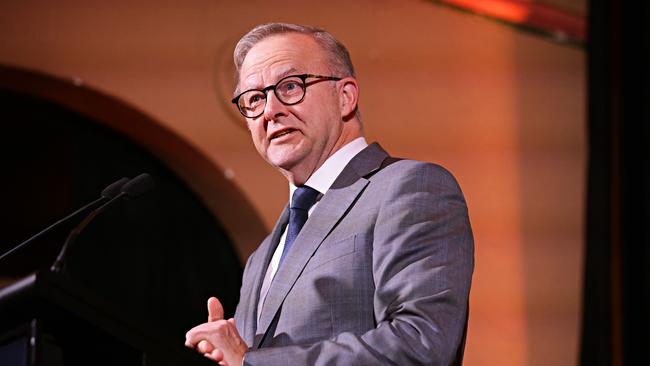
In each of the past three quarters, the increase in the headline wage price index has been above the growth in consumer prices.
It’s a mini, on-points win for the Albanese government, which vowed to “get wages moving”.
But that comes after a slide in household disposable incomes due to inflation, higher taxes and a doubling in interest costs, which is holding back economic activity.
For a little while at least, wages growing at about 4 per cent and inflation tumbling back to the Reserve Bank’s 2-3 per cent target range will mean workers, on average, are finally getting “real wage” increases.
The retooled tax cuts, providing a bigger boost in take-home pay to low and middle-income earners, will help family budgets, especially those with relatively large mortgages in the early phases of repayment and those rolling off ultra low-fixed rate deals scored during the pandemic.
The lingering question is how long will it take to make up the ground lost during the big inflation? Perhaps never.
When you get a once-in-a-century shock to supply, national income evaporates.
Covid’s cancelled grooming appointments, footy games and meals out? Gone forever.
It also depends where you sit in the life cycle.
The crisis era’s cheap money and fiscal splurge, bigger than needed, means many households built up a pile of savings, while others surged ahead in their mortgage payments.
But there is a super-sized caveat. In minutes from this month’s meeting, the RBA board said the outlook for wages was consistent with the inflation target “on the assumption that productivity growth increases to around its long-run average”.
The central bankers’ shorthand is that as long as you have annual productivity growth of 1 per cent (lamentably, over the past five years the cumulative score is zero) you can have 3.5 per cent wage growth and still hit the 2.5 per cent midpoint of the RBA’s mandated inflation zone.
Many economists expect productivity to turn around, as more of the recent investment comes online and employers cut back workers’ hours.
But we’ll have to wait and see.
At least we’ve avoided the unsustainable wage growth and higher interest rates in Britain.
A week ago, Treasury secretary Steven Kennedy told senate estimates “there has been no evidence of a wage-price spiral emerging and no evidence of a change in inflation expectations”.
“This provides further confidence that the unemployment rate can be maintained at levels previously thought unsustainable,” said Kennedy, who is on the central bank’s board.
The RBA board minutes said that as inflation moderated and real incomes started to rise, consumption growth was expected to recover gradually to its pre-pandemic average over 2025, and pull the economy along.
But there was a risk consumers might not increase spending again if the effect of the previous fall in real wages outweighed the support from the large stock of additional savings built up in 2020 and 2021, as well as the rise in housing wealth over the previous year, it said.
It’s uncertain and could go either way as the political cycle imposes itself into policy positions.
Clearly, Labor won’t simply be hoping for the best before an election Anthony Albanese suggests will come in May next year, after a full term is served.
There’s still a budget in May, and another one in March next year, as the Prime Minister told ABC listeners on Wednesday.
Labor won’t be shy in giving the economy a shake-shake-shake with voter pay-offs on the road to seeking a second term.







This is about as good as it gets for wages growth in an economy cooling its jets and where the jobless rate is rising.